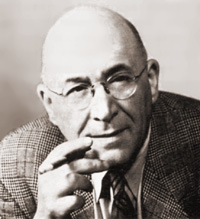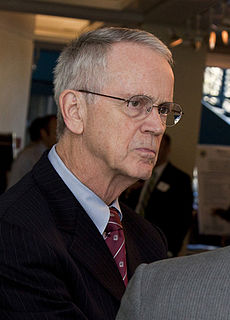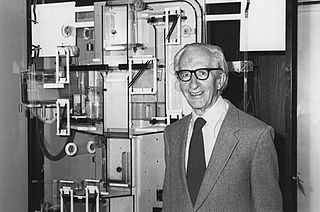A Quote by Mario Pei
Science and technology contribute to the fast-expanding vocabularies of all living civilized tongues at a faster rate than all other fields of human endeavor put together.
Related Quotes
Most people don't put things together. Geologists study the surface of the earth and geological phenomena. Meteorogists study the weather. That isn't science. Science is the study of all things that affect human beings. They have to be together! A meteorologist has difficulty talking with a sociologist, because they don't understand each other. You can't teach sciences in 'bits'; you have to bring it all together. Science is a way of thinking - a way at arriving at conclusions without your own opinion in it.
The history of science, like the history of all human ideas, is a history of irresponsible dreams, of obstinacy, and of error. But science is one of the very few human activities-perhaps the only one-in which errors are systematically criticized and fairly often, in time, corrected. This is why we can say that, in science, we often learn from our mistakes, and why we can speak clearly and sensibly about making progress there. In most other fields of human endeavour there is change, but rarely progress ... And in most fields we do not even know how to evaluate change.
I think the Nobel Prize helps for a number of reasons. Number one, if I can be frank, there is these people will feel by getting a Nobel Prize that I'm one of them, that it is possible to contribute on the world map of science and technology. And the other thing also which I'm hoping for is that the government in Egypt is willing and interested in promoting science and technology and this is an ideal time now to be able to do something.
The weird thing is I feel like I'm shedding skin so fast and I'm growing and I'm becoming a new person so quickly at a rate that I'm comfortable with, yet it seems faster and more steady than an other time in my life except 16, 17, 18. I just have to sit down and listen to the ideas I'm having. And I'm not worried.
The solutions put forth by imperialism are the quintessence of simplicity...When they speak of the problems of population and birth, they are in no way moved by concepts related to the interests of the family or of society...Just when science and technology are making incredible advances in all fields, they resort to technology to suppress revolutions and ask the help of science to prevent population growth. In short, the peoples are not to make revolutions, and women are not to give birth. This sums up the philosophy of imperialism.
In general, I'm in support of promoting art and science in public schools. I think music and science are probably the most important factors for the human brain developing. Even more so than any other fields, because music covers mathematics, cognitive reasoning, motor skills, coordination, like, it's kind of everything.
there is a danger, when thinking of the earliest civilized people, of putting too much emphasis on technology. One tends to assume that if you don't have, at least, a lavatory and perhaps something that will take you a lot faster than your own feet, or a certain number of gadgets in the house, then you must be in some way, a bit backward and defective ... the important thing to remember is that technology is not necessarily the same thing as civilization.
I have no opposition at all to technology. I think technology is a wonderful thing that has to be used thoughtfully, and we can't just assume that every bit of new technology improvesthe quality of life; it's really in how the technology is used. What I am very disturbed about is this trend of everything happening faster and faster and faster and there being more and more general noise in the world, and less and less time for quiet reflection on who we are, and where we're going.

































